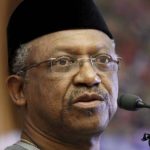Civil Society Organisations (CSOs) in West Africa, Think Tanks, media representatives and others, have made recommendations to the Economic Community of West Africa States (ECOWAS) on the crisis in Mali.
Regional leaders are in the country to find a solution to the political entanglement.
The stakeholders, under the auspices of the West Africa Civil Society Institutes (WACSI) Policy Dialogue Series, held a virtual meeting on the impasse.
The webinar discussed the deadlock between the government of President Ibrahim Boubacar Keita and the M5-RFP coalition.
It also analysed the potential threat to Malian democracy, as well as the overall peace and stability of the West African region.
The parley warned that consequences of the quagmire could affect neighbouring countries in the Sahel region, specifically Niger, Cote d’Ivoire, Burkina Faso, and Guinea, if unresolved immediately.
It acknowledged the efforts of ECOWAS Mission to Mali headed by former Nigerian President, Goodluck Jonathan, deployed from July 15-19 to mediate a truce between the Keita administration and the M5-RFP.
In a communique, the participants urged ECOWAS to ensure that all relevant national actors are engaged in the peace talks.
These are Keita, M5-RFP (Coordination of Movements of Associations and Sympathisers of Imam Mahmoud Dicko (CMAS), Front for the Safeguarding of Democracy (FSD), Espoir Mali Koura (EMK) backed by Mohamed Ould Cheiknè Hamaullah, the Chérif de Nioro du Sahel), CSOs, women, youth, community and religious leaders.
The communique urged the regional body to add to its team of mediation, respected civil society leaders from across the region.
ECOWAS was advised to: “Create a Mixed Mediation Committee composed of ECOWAS Heads of States, at least three former Heads of State of Mali (each to be proposed by Keita, M5-RFP and civil society);
“Refrain from focusing its attention and proposed resolutions on the immediate cause of the current political crisis (the dispute over legislative election results);
“Adopt a holistic approach which looks at the root causes including lingering socio-political crisis, economic hardship, bad governance, perceived corruption, human rights violation, shrinking civic space and worsening security situation;
“Consider daily consultations with civil society constituents and other key sectors, including the business sector and the academia, in bid to understand the people’s position and pains.”
On the government of Mali, the communique demanded communication of its priorities and decisions on youth development.
The administration was advised to: “Set-up a National Committee for Reconciliation which includes civil society groups to collectively review the recommendations of various stakeholders and oversee implementation;
“Carry out an independent investigation into deaths of innocent citizens that occurred during the protests of 10th, 11th and 12th July 2020;
“Probe recent violations of human rights; and create an enabling environment for dissenting voices, freedom of expression/speech and civic liberty;
“Initiate a space for mutually progressive dialogues with the people of Mali, M5-RFP, CSOs, women, youth, community and religious leaders, to collectively reach consensus on an amicable solution to the crisis;
“Establish an administrative liaison body to interface between the Electoral Management Body (EMB) and the Malian Constitutional Court.”





